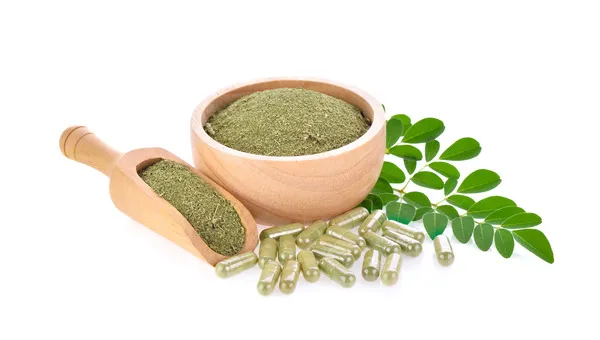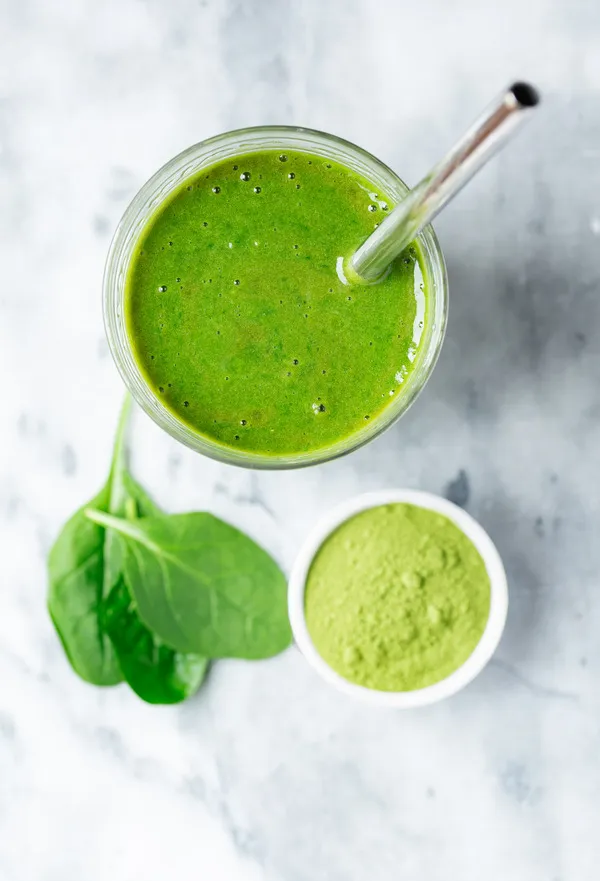
For centuries, the moringa tree has been valued as a source of nutrition, healing, and vitality across parts of Asia and Africa. Every part of the plant, from its leaves to its seeds, offers something remarkable. Modern research suggests that moringa may help support energy, hormone balance, and immunity, which has earned it the nickname “the miracle tree.”
In this guide, you’ll learn what makes moringa supplements unique, the science behind their benefits, how to take them safely, and what to look for when choosing a high-quality brand. If you’re curious about moringa capsules or looking for a natural way to boost daily nutrition, this article will walk you through everything you need to know.
Table of Contents
- What Are Moringa Supplements?
- Science-Backed Benefits of Moringa Supplements
- Moringa Supplement Dosage & How to Take It
- Moringa Capsules vs Powder vs Extract: Which Is Best?
- Comparing the Best Moringa Supplement Brands
- Are There Any Side Effects or Risks?
- Sustainability & Quality Sourcing (Why It Matters)
- Where to Buy Quality Moringa Supplements
- A Small Leaf, A Big Difference
- Frequently Asked Questions
What Are Moringa Supplements?

Moringa supplements are made from the dried leaves or extracts of Moringa oleifera, a fast-growing tree native to India but now cultivated across the tropics. The leaves are harvested, gently dried, and milled into a fine powder that retains most of its nutrients, including vitamin C, iron, calcium, and plant-based protein. This powder is then packaged as loose powder, capsules, or sometimes as concentrated extracts.
Each form offers something slightly different. Powders can be stirred into smoothies or soups, giving a subtle earthy flavor and flexibility with dosage. Capsules provide a cleaner option for those who prefer not to taste moringa’s slightly bitter edge. Extracts are more potent and often marketed toward people who want faster results or smaller doses.
There’s an ongoing debate about which form is “best.” Some nutritionists argue that whole-leaf powder preserves the plant’s natural balance, while others point out that capsules make consistency easier, which can influence how well supplements work. Moringa supplements aren’t magic bullets; their benefits depend on quality, freshness, and how they fit into an overall diet.
To put it simply, these supplements aim to capture moringa’s nutritional power in a form that suits modern life, one scoop or capsule at a time. For anyone who struggles to eat enough greens, moringa can serve as a gentle bridge between convenience and natural nourishment.
Science-Backed Benefits of Moringa Supplements
Moringa’s potential health benefits are becoming more widely known. The leaves contain an unusually wide mix of vitamins, minerals, and phytonutrients that may support many systems in the body at once.
Scientists have only begun to explore its full potential, yet early research paints a compelling picture of a plant that could enhance everyday wellbeing in subtle but measurable ways.
Rich in nutrients and antioxidants

A single serving of moringa powder typically provides a broad spectrum of nutrients including vitamin A, vitamin C, iron, and calcium. It also contains plant-based protein and a group of antioxidants such as quercetin and chlorogenic acid, which appear to help neutralize free radicals. This antioxidant action may explain why moringa is sometimes linked to reduced oxidative stress and better overall resilience.
Energy and metabolism support
Unlike stimulants that spike energy levels, moringa’s effect is gentler. Its balance of iron and B vitamins may assist with oxygen transport and energy metabolism. Some small studies indicate it could help reduce fatigue in people who are iron deficient, though results are still limited. Anecdotally, many users describe the feeling as “steady energy” rather than a burst.
Women’s health and hormone balance
Moringa has become popular among women seeking natural hormone and energy support. The leaf’s phytonutrients may influence estrogen balance and contribute to iron replenishment during monthly cycles. A few early investigations have even looked at its role in supporting lactation, though more controlled studies are needed.
Skin, hair, and cellular renewal
With its mix of antioxidants and amino acids, moringa may promote collagen formation and protect against environmental stressors. Some beauty researchers suggest it can help maintain skin elasticity or reduce dullness over time. For hair, moringa’s zinc and vitamin E content may contribute to stronger strands and scalp health. (Related reading: 7 Proven Moringa Benefits for Glowing Skin & Healthy Hair.)
Immunity, detox, and inflammation
Moringa’s chlorophyll and polyphenols are believed to support liver function and the body’s natural detox pathways. Laboratory research also shows it may reduce inflammatory markers, although human studies are still catching up. Nutritionists often view it as a supportive food rather than a cure, making it part of a bigger wellness picture.
The growing scientific interest in Moringa oleifera hints that its traditional uses were not misplaced. Whether you’re after better energy, immune support, or overall balance, consistent use of a high-quality supplement such as Moringa Magic may help make those benefits more tangible in daily life.
Moringa Supplement Dosage & How to Take It
Finding the right moringa dosage depends on several factors: the supplement’s concentration, your health goals, and personal tolerance. Most commercial capsules provide between 500 and 1000 milligrams of moringa leaf powder per serving, a range that research suggests is generally safe for daily use. Starting on the lower end can be wise, especially if your body isn’t used to concentrated greens.
Recommended daily intake
For general wellness, many nutritionists suggest one to two capsules per day (roughly 500–1000 mg). Those using powder can add one to two teaspoons to a smoothie, yogurt, or warm drink. Extracts or tinctures tend to be stronger and should follow label instructions carefully.
| Form | Typical Dosage | Frequency | Notes |
| Capsules | 500–1000 mg | 1–2× daily | Take with meals |
| Powder | 1–2 tsp | 1× daily | Blend or mix with food |
| Extract | Follow label | - | Higher potency |
Best time to take moringa
Many people prefer taking moringa in the morning for an energy lift or alongside meals to aid absorption. It pairs well with foods containing healthy fats, which may help the body use its fat-soluble nutrients more efficiently.
Safety and who should avoid it
Moringa is generally well tolerated, but large doses may cause digestive upset in sensitive individuals. Those who are pregnant, breastfeeding, or taking medication for blood sugar or blood pressure should consult a doctor first. There’s also limited research on long-term use, so moderation is sensible.
Moringa Capsules vs Powder vs Extract: Which Is Best?
Choosing the best moringa form depends on your routine, taste preferences, and how you plan to use it. All forms deliver similar nutrients, but differences in absorption, convenience, and flexibility can matter more than you’d expect.
Capsules
Convenient, pre-measured, and easy for daily use.
Capsules offer a measured dose that’s easy to swallow and travel with. They mask moringa’s slightly bitter flavor, which many people dislike. The trade‐off is that absorption may be a bit slower, and low-cost products sometimes include fillers or lower-quality powder. Always check the label for “100 % moringa leaf” or “no fillers” to avoid diluted formulas.
Powder
Mixable, nutrient-rich, and great for recipes.
Moringa powder caters to those who enjoy tinkering with recipes. You can blend it into smoothies, mix it into porridge, or even sprinkle it into soups. Because you measure each dose, there’s freedom to adjust based on how you feel. The downside: if not stored correctly (airtight, away from light), the powder can oxidize or lose potency. And the flavor can be grassy or strong, which isn’t always welcome.
Extract
Fast-absorbing and portable for on-the-go.
Extracts (capsules or tinctures) offer a more concentrated form of moringa phytochemicals, meaning you might get stronger effects at lower doses. But potency varies a lot by brand, so reliability is key. If you use an extract, small dosage errors or inconsistent formulations could lead to weaker benefits or unwanted effects.
Learn more about what form of moringa best suits your lifestyle: How to Use Moringa Daily (Powder vs Capsules)
Comparing the Best Moringa Supplement Brands
Not all moringa supplements are alike. Variations in harvesting, processing, ingredient sourcing, and labeling affect how much usable nutrition you get. A glance at popular supplement listings shows many products with vague claims or cut-rate ingredients. Understanding what distinguishes a top brand can help make the difference between a product that works and one that disappoints.
| Brand | Type | Organic | Capsule / Packet Count | Key Feature / Caveats |
| Moringa Magic | Capsule (leaf) | Yes | 60 capsules | High bioavailability, eco packaging, leaf-only formula |
| B’Leaf Nature | Capsule | Yes | 180 capsules | High count per bottle, but low cost raises questions about sourcing |
| Organic India | Capsule | Yes | 60 capsules | Longstanding herbal brand, good sourcing transparency |
| Swanson | Capsule (full spectrum) | Varies | 60 capsules | Well-known brand in mainstream health retail |
| Aduna | Powder (leaf) | Yes | - | Powders for blending, but not in capsule form |
Key quality indicators
Here are some real examples from the market:
Why Moringa Magic holds up
With Moringa Magic, the focus is on purity and consistency: leaf-only powder, organic cultivation, and minimal processing. It positions itself to deliver a clean dose without mixing in stems, fillers, or proprietary blends. While it may cost more than bargain brands, the transparency in sourcing and packaging can justify the premium.
Before choosing a brand, check our full Moringa Magic review for insights on quality, sourcing, and results.
Watch out for weaker products
Many cheaper supplements mix leaf and non-leaf parts, include filler ingredients or additives, or fail to disclose extraction ratios. Some “moringa blends” combine herbs that dilute the actual moringa content. Always read the ingredient list carefully: if moringa leaf isn’t the first item, that’s a red flag.
Buying Checklist
Are There Any Side Effects or Risks?

Moringa supplements are generally considered safe for most adults when taken in moderate doses, but that doesn’t mean everyone should use them without thought. Because moringa is highly concentrated, it can interact with certain medications, especially those for blood sugar or blood pressure. If you’re already taking prescription drugs for these conditions, it’s best to check with a healthcare professional before adding moringa to your routine.
Some users report mild stomach discomfort when starting moringa, particularly if they take it on an empty stomach or exceed the suggested dose. The high iron content can also cause digestive sensitivity for a few people. Pregnant or breastfeeding women should avoid moringa root or bark extracts, which contain compounds that may not be safe during pregnancy.
Another point worth mentioning is product quality. Not all moringa supplements are equally pure, and contamination with heavy metals or fillers is an issue in poorly regulated markets. Choosing a trusted brand that provides organic certification or lab testing reduces these risks significantly.
Moringa may be a natural product, but “natural” doesn’t always mean harmless. Start small, observe how your body reacts, and focus on consistent, moderate use rather than large doses. For most people, that’s enough to enjoy the benefits without unwanted side effects.
Sustainability & Quality Sourcing (Why It Matters)
How moringa is grown and harvested makes a real difference to both your health and the environment. The tree grows fast, but its leaves absorb minerals from the soil, meaning poorly managed farms can deplete local ecosystems. Ethical sourcing ensures that moringa cultivation supports biodiversity instead of undermining it.
Sustainable producers focus on organic farming, fair wages for growers, and responsible drying and packaging methods that preserve nutrient quality. When companies skip these steps, the result is often lower nutrient content and environmental strain. In contrast, when moringa is grown organically and dried at low temperatures, its vitamins and antioxidants remain intact.
If more consumers paid attention to sourcing, supplements could become a force for both personal and environmental health. After all, a “miracle tree” should benefit more than just the person taking it.
Where to Buy Quality Moringa Supplements
The safest place to buy moringa supplements is directly from reputable brands or verified health retailers. Many people turn to online marketplaces for convenience, but it’s worth taking a few minutes to check reviews, ingredient lists, and certifications. A genuine moringa product should list Moringa oleifera leaf as the main ingredient, specify the dosage per serving, and ideally include organic certification or third-party lab testing.
If you’re serious about quality, buy from official brand websites or trusted wellness stores that specialize in plant-based or organic products. This reduces the risk of counterfeit or diluted supplements.
A Small Leaf, A Big Difference
Moringa may not be a cure-all, but it’s hard to ignore how much goodness is packed into this single plant. With its mix of vitamins, minerals, and antioxidants, it can help boost your energy, skin health, and overall balance when used consistently.
The key is choosing a supplement that respects both quality and the environment. Moringa Magic makes that decision easier by combining pure organic moringa with transparent sourcing and sustainable packaging. It’s a small daily choice that supports your wellbeing and the planet at the same time, a reminder that true wellness starts with what we put into our bodies, and how it’s grown.
Frequently Asked Questions
The answer depends on what you’re trying to measure. Some people report feeling a subtle energy boost within a few hours or days. According to reviews, effects like improvements in cholesterol or blood sugar tend to show only after several weeks of regular use. That said, evidence is still limited and varies by individual metabolism, dosage, and the form of moringa used.
Often yes, but caution is wise. Moringa may influence how your body processes certain medications or supplements, especially those for blood sugar, blood pressure, or thyroid functions. If you’re already on a regimen of vitamins or prescription meds, it’s smart to check with a qualified medical practitioner before combining them.
Neither is universally “better.” Each has pros and cons. Capsules deliver a fixed dose without taste, while powders offer flexibility in dosing and can be mixed into foods. The deciding factors tend to be convenience, flavor tolerance, and absorption. Quality matters more than form. A poorly processed capsule may be inferior to a fresh, well-stored powder.
Long-term safety data is limited. Some sources indicate that leaf forms have been used safely in human studies for up to six months. Root and bark extracts carry more risk and are not generally recommended for extended use. Because moringa can affect metabolic and hormonal pathways, moderation and periodic reassessment are advisable.
Yes. Moringa is plant derived and contains no animal products. It fits easily into vegan or vegetarian diets. The only caveat is to check for non-vegan capsule shells or added fillers if buying a supplement, as some capsules use gelatin or mixed additives.
